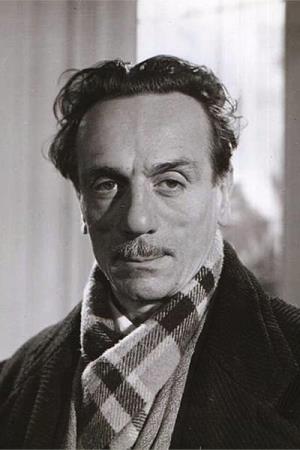
Eduardo De Filippo (Naples, 24 May 1900 - Rome, 31 October 1984), was an Italian playwright, actor, director, screenwriter and poet. Considered one of the most important Italian theatrical authors of the twentieth century, he was the author of numerous theatrical works which he himself staged and interpreted and, later, translated and performed by others also abroad. A prolific author, he also worked in the cinema with the same roles covered in the theatrical activity. For his artistic merits an
Gender: Male
Born On: 24-May-1900
Last Info Sync: 12/24/2022 2:20:00 AM
Eduardo De Filippo's Filmography on TV
List of programs starring Eduardo De Filippo on tv. Programs are sorted in order of last seen on tv. Last updated: Apr 26, 2025 3:53 AM
Gennareniello (1978)
Gennareniello, a crazy inventor, is married to Concettina and lives at home with his son Tommasino, full of tics, his spinster sister and with Matteo, a drawing master who makes plans for his inventions. Driven by his friends, the man courts the young teacher Anna and when his wife notices it, he is forced to run away from home, overwhelmed by the scorn of derision of friends and acquaintances who come to disguise him as a dandy, thus offending his dignity.
Il cilindro (1978)
The comedy, centered on five characters (Rita, Rodolfo, Agostino, Bettina, and Don Attilio - "o viecchio pazzo"-), has as background the Italy of the 60s between the economic boom and the perennial unemployment crisis. The cylinder, well explained by "Agostino-Eduardo" in the comedy, is a representation of power, designed to intimidate the ignorant for its only evocative "power". It can also be seen as a sort of "Pirandellian mask", where the character of Augustine wears it to defend himself and
Genres
#ComedyIl cilindro - Il cilindro (1978)
The comedy, centered on five characters (Rita, Rodolfo, Agostino, Bettina, and Don Attilio - "o viecchio pazzo"-), has as background the Italy of the 60s between the economic boom and the perennial unemployment crisis. The cylinder, well explained by "Agostino-Eduardo" in the comedy, is a representation of power, designed to intimidate the ignorant for its only evocative "power". It can also be seen as a sort of "Pirandellian mask", where the character of Augustine wears it to defend himself and
